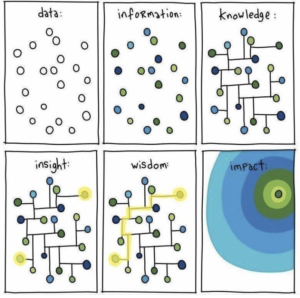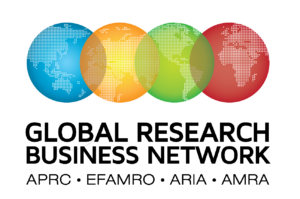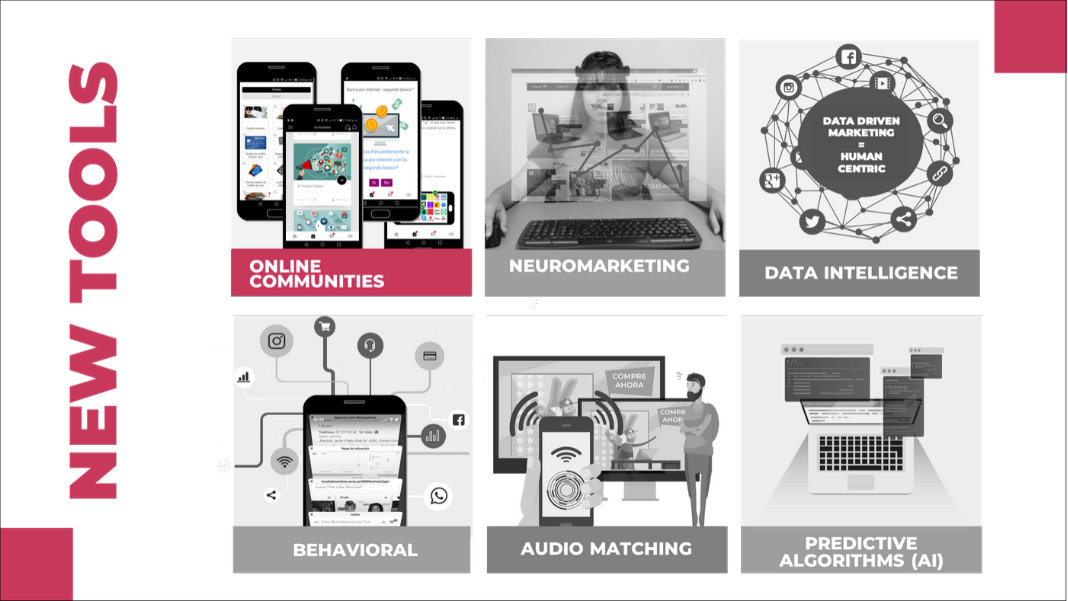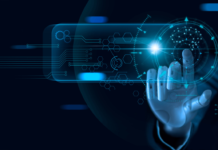Today, digital data gives us countless possibilities to understand our environment (both online and offline), consumer trends, journeys, competitors and audiences transforming data into strategy.
Likewise, technological development has given way to the creation of different tools that allow systematizing this data and predicting behaviors. Let us consider some examples of what is happening. According to Internet Live Stats, 37% of global mobile traffic is on YouTube and of that, 70% of the selections come from YouTube’s suggestions. In a similar way, 75% of movies seen on Netflix are chosen from an algorithm´s recommendation. An algorithm is nothing new, it is a mathematical operation with infinite capabilities, oriented by humans that have finite capacity. This implies responsibility in its use, since in some cases some limits have been transgressed, seeking to influence behaviors. Artificial intelligence is an opportunity and a risk at the same time, so the need to work under a code of ethics.
Local and global associations related to market research have been working on it. For example, ESOMAR and GRBN have developed plenty of codes and guidelines in order to self-regulate our industry and give tools to anybody interested in this activity (Guidelines for Researchers and Clients Involved in Primary Data Collection, Guideline on Mobile Research, Online Research Guideline, Guideline on Research and Data Analytics with Children, Young People and other Vulnerable Individuals, among others). This commitment is part of our DNA as researchers and is a value that is more necessary than ever. Technology is not neutral, it depends on the values and interests of the person who manages it. Technology can be fascinating but our focus should always be on people, the rest are tools to reach them. Therefore, the focus should not be on technology, but on people and their different roles (citizens, consumers, customers, etc.).
The latter implies putting people in the center, not in the products, not in the services, in the people. It´s a change on the view that companies have and involves all processes/areas within a business. This has to be more than a declaratory act, companies must begin by knowing people. From basic topics such as social composition to their concerns and expectations. Metrics that imply deeper knowledge of humans, beyond the tactical level. People do not want to be defined by data points, nor do they speak with them as if they were customers, but instead want to be seen as human beings, with all that that implies and in all its dimensions
As Joaquim Bretcha (Esomar´s President) said in his opening speech at the last Esomar Congress in Edinburgh, “In the Fourth Industrial Revolution, Data is the current power and Human Centricity must be the mind frame. We command the data management; we command the power. Our identity is characterized by its Human Centricity. It is our opportunity to be the James Watts and the Adam Smiths of our time, the ones to set the standards and lead this Revolution”.
 To do this, we have new tools that range from passive listening (observing without asking) to the use of predictive algorithms, through new online methodologies and neuroscience-based devices. We live in interesting times and with more tools than ever, but we must not lose ourselves in technology, we must leverage it to build on people’s deep knowledge. Although this has always been the essence of market research, new capabilities are required. Research and knowledge generation expands beyond data collection and analysis, to managing and synthesizing data from a variety of sources, from focus groups, surveys, social media and big data.
To do this, we have new tools that range from passive listening (observing without asking) to the use of predictive algorithms, through new online methodologies and neuroscience-based devices. We live in interesting times and with more tools than ever, but we must not lose ourselves in technology, we must leverage it to build on people’s deep knowledge. Although this has always been the essence of market research, new capabilities are required. Research and knowledge generation expands beyond data collection and analysis, to managing and synthesizing data from a variety of sources, from focus groups, surveys, social media and big data.
As researchers, we can lead and contribute to companies and society throughout this data revolution and help them to adapt or to transform in this new context. Our holistic view, our scientific methodologies, our rigor and intelligent adoption of technology should encourage us to do so.
 Urpi Torrado
Urpi Torrado
CEO
Datum Internacional







